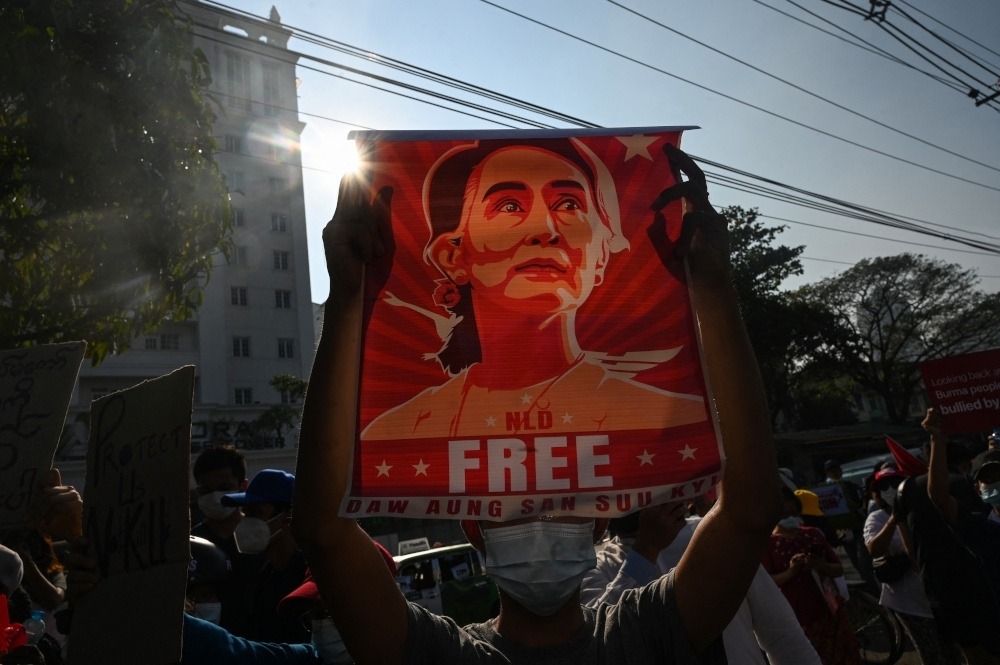
ASEAN Rejects Myanmar’s Military Elections, Illegitimate
KUALA LUMPUR, Oct 11 — A broad coalition of ASEAN stakeholders has forcefully rejected Myanmar’s planned military-run elections, declaring them illegitimate and a violation of ASEAN’s Five-Point Consensus. The unified statement, released after a series of meetings hosted by Malaysia in its role as ASEAN Chair, warns that such elections would deepen Myanmar’s crisis and threaten regional stability.
The meetings were convened under the leadership of Tan Sri Othman Hashim, Malaysia’s Special Envoy to Myanmar, and brought together a wide spectrum of representatives, including members of the National Unity Government (NUG), Ethnic Resistance Organisations (EROs), and key figures from civil society and political bodies across Southeast Asia.
Participants spoke with a single voice in condemning the Myanmar junta’s persistent violence against civilians, its disregard for democratic norms, and its refusal to engage in meaningful dialogue with opposition forces. They emphasised that holding elections under a military regime—amid ongoing conflict, mass displacement, and suppression of political freedoms—would only entrench authoritarian rule and further destabilise the region.
Violation of ASEAN’s Five-Point Consensus
The stakeholders’ statement underscored that the junta’s electoral plans directly contradict the Five-Point Consensus, which was agreed upon by ASEAN leaders in April 2021. The consensus calls for an immediate cessation of violence, constructive dialogue among all parties, the appointment of a special envoy, humanitarian assistance, and a visit by the envoy to meet with all stakeholders.
However, despite repeated pledges, the Myanmar military has failed to comply with any of these commitments. Instead, it has escalated air strikes, intensified attacks on ethnic areas, and imprisoned thousands of political prisoners—including former leaders, journalists, and activists.
The joint ASEAN statement stresses that any attempt to legitimise elections conducted under military control would undermine ASEAN’s credibility and contradict the bloc’s foundational principles of democracy, human rights, and rule of law.
Malaysia’s Leadership in Facilitating Dialogue
Under Malaysia’s ASEAN Chairmanship, Kuala Lumpur has taken a leading role in facilitating dialogue and engaging all relevant stakeholders to find a peaceful resolution to Myanmar’s crisis. Special Envoy Othman Hashim emphasised that regional peace cannot be achieved without an inclusive political process that reflects the will of the Myanmar people.
Malaysia’s approach has been widely praised for its openness and inclusivity. By engaging not only government representatives but also ethnic groups, resistance movements, and exiled leaders, Malaysia has signaled a shift toward a more balanced and people-centered ASEAN response.
Observers note that Malaysia’s diplomatic efforts mark a turning point in how the bloc addresses internal crises among member states. Rather than treating Myanmar’s situation as a purely domestic issue, Malaysia’s stance reflects growing recognition that instability in Myanmar poses real risks to regional security, migration, and economic integration.
Regional Stability at Risk
The statement issued by ASEAN stakeholders highlights the potential regional consequences of a sham election conducted under the junta’s authority. Political analysts warn that legitimising the regime through an election would embolden other authoritarian movements in the region and weaken ASEAN’s collective voice on democracy and human rights.
The continuing violence in Myanmar has already forced over two million people to flee their homes, with thousands seeking refuge in neighbouring countries such as Thailand, India, and Bangladesh. Humanitarian agencies have warned that cross-border instability, arms trafficking, and refugee movements could intensify if the junta proceeds with its electoral plans.
Economically, the ongoing conflict has disrupted trade routes, foreign investment, and tourism—impacting not only Myanmar but also ASEAN’s broader economic ambitions. The bloc’s credibility as a promoter of regional peace and integration could be at stake if it fails to act decisively.
Calls for Urgent, Time-Bound Action
In their joint communiqué, the ASEAN stakeholders called for urgent, time-bound action to end the violence, protect civilians, and ensure humanitarian access to conflict-affected regions. They urged ASEAN to implement stronger accountability mechanisms for non-compliance with the Five-Point Consensus and to consider targeted measures against those obstructing peace efforts.
Specifically, the group called for:
Immediate cessation of military offensives across ethnic states and civilian areas.
Unrestricted humanitarian access through neutral, cross-border channels.
Release of all political prisoners, including President Win Myint and State Counsellor Aung San Suu Kyi.
Inclusion of all stakeholders—the NUG, EROs, and civil society—in any future peace talks or electoral processes.
A clear roadmap and deadlines for ASEAN’s diplomatic actions to ensure accountability.
Stakeholders also appealed to the international community to coordinate with ASEAN, impose targeted sanctions, and restrict the junta’s access to weapons and financial resources that fuel its campaign against civilians.
Humanitarian Crisis Deepens
Myanmar’s humanitarian crisis continues to worsen. According to the United Nations, more than 19 million people—nearly 40 percent of the country’s population—now require humanitarian assistance. Airstrikes, forced displacement, and restrictions on aid have left communities in dire need of food, medicine, and shelter.
Civil society organisations at the meeting shared firsthand reports of villages being burned, schools bombed, and hospitals attacked. Many stressed that without concrete regional intervention, the humanitarian catastrophe could spread across borders, creating long-term security and migration challenges for the entire ASEAN region.
A Call for Moral Leadership
The statement concluded with a strong moral appeal: ASEAN must stand firmly on the side of the Myanmar people. Stakeholders urged regional governments to reject any process that legitimises military rule and instead support an inclusive political dialogue aimed at restoring democracy and peace.
They expressed deep appreciation for Malaysia’s leadership and reaffirmed their belief that the future of Myanmar should be shaped by its people—not by force, fear, or fabricated elections.
“Peace, justice, and a federal democratic future can only be achieved through dialogue, not through a process that strengthens dictatorship,” the joint statement declared.
ASEAN’s Next Steps
ASEAN leaders are expected to deliberate on Myanmar’s situation at the upcoming ASEAN Summit, where Malaysia will present the outcomes of the recent stakeholder meetings. Diplomats believe that stronger language and potential timelines for enforcement could mark a new phase in the bloc’s response to the Myanmar crisis.
If ASEAN can unite behind a credible and time-bound plan, it may yet salvage its role as a force for peace and stability in Southeast Asia. However, continued inaction could render its Five-Point Consensus meaningless and erode confidence among member states and global partners alike.
Conclusion
The rejection of Myanmar’s military elections by ASEAN stakeholders represents a critical moment in regional diplomacy. It underscores the growing consensus that peace and democracy in Myanmar are essential for the region’s long-term stability.
As the bloc faces one of its greatest moral and political tests, the world will be watching whether ASEAN chooses to uphold its principles—or allow Myanmar’s tragedy to deepen unchecked.
Related posts:
 Myanmar Military Paraglider Strike Kills Dozens
Myanmar Military Paraglider Strike Kills Dozens
 Inle Lake Buddhist Festival in Myanmar | Tradition & Renewal
Inle Lake Buddhist Festival in Myanmar | Tradition & Renewal
 Thailand Extradites Shwe Kokko Tycoon She Zhijiang to China
Thailand Extradites Shwe Kokko Tycoon She Zhijiang to China
 U.S. Identifies Myanmar and Other Nations in Annual Drug Report
U.S. Identifies Myanmar and Other Nations in Annual Drug Report
 U.S. POLICY ON MYANMAR
U.S. POLICY ON MYANMAR
 Myanmar’s earthquake death toll rises to 3,770
Myanmar’s earthquake death toll rises to 3,770
